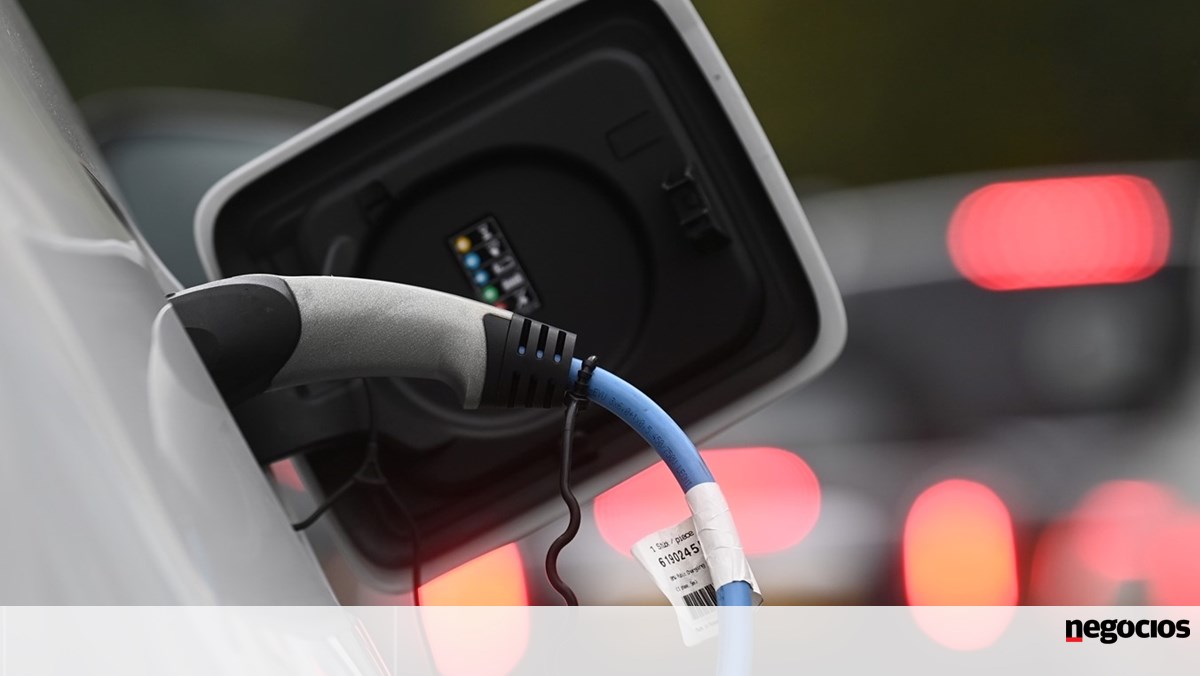On the streets of Shenzhen, the tech hub in southeastern China, electric cars are outpacing internal combustion vehicles, illustrating the country’s accelerating move to the forefront of the auto industry.
In Xinan, the wide, 10-lane artery that traverses the dense network of skyscrapers in the city’s financial district – the tallest building is the Ping’an Financial Center at 550 metres -, cars with green license plates, a mark that identifies internal combustion vehicles, are already prevalent.
“We have one of the highest penetration rates in the world,” confirmed Chamber President Chen Weizhong. He pointed out that the goal is to reach 1.3 million units by 2025.
About 10,000 kilometers away, in Brussels, the President of the European Commission, Ursula von der Leyen, announced this week an investigation into the subsidies that China gives to electric car manufacturers. “Global markets are flooded with cheaper Chinese electric cars and their prices are kept artificially low thanks to massive government subsidies,” he explained in his State of the Union address.
Experts interviewed by Lusa believe that the problem consists of “heavy and very slow structures” of the European groups in adapting to an industry that is undergoing profound transformations. They say the investigation announced this week “points to the fear” that Europeans will not be able to compete in the electric car sector.
Carlos Martins, who runs a factory for the Portuguese auto components company Sodesia, in the city of Dalian in northeastern China, said: “Europe slept and did not believe that China was capable of developing the automobile sector.”
Speaking to Lusa, the Portuguese, who has lived in China for ten years, highlighted the “completely different” working speed of local manufacturers, unlike their European counterparts, which have “very heavy” organizational structures and take “a lot of time” to make adjustments.
“It took us a long time to adapt,” he explained. “We have very heavy structures, accustomed to operating in a mature market, where competition is more or less defined between two or three groups,” he said.
The emergence of Chinese brands, some of which were founded less than a decade ago with their eyes on the electrical appliances sector, promises to have a “huge impact” on the industry, Carlos Martins warned.
Last year, nearly six million electric cars were sold in China – more than were sold in all other countries in the world combined. The size of the Chinese market and strong support from the state have given rise to local brands, including BYD, NIO or Xpeng.
“Traditional brands are bringing analogue games to the digital playground,” said Tu Lu, director of Sino Auto Insights, a consultancy for the Lusa dealership. “China’s automotive sector is dominated by computer programmers,” he noted.
Some of China’s largest technology companies, including Huawei, Alibaba and Baidu, provide the digital foundation for vehicles in the country, enabling the construction of smart, networked cars.
“It’s an extension of the cell phone: we can ask the car to set the temperature, open the rear window, lock the door, or shop online while driving,” Carlos Martinez described. “It’s a huge leap in the way the driver sees the car.”
For Tu Lu, the investigation announced Wednesday “says a lot about the lack of competitiveness [veículos elétricos] Europeans.
He pointed out that “politicians fear that European manufacturers will not be able to develop and manufacture competitive cars in the electric sector in the near future.”
In 2014, Chinese leader Xi Jinping stated that developing electric vehicles is the only way for China to become an “auto powerhouse.”
Since then, Chinese authorities have provided generous incentives for purchasing electric cars.
In 2018, for example, the buyer of an electric model with a range of up to 400 km received the equivalent of approximately €6,500 from the central government and additional support of the same amount from the relevant local government.
North American think tank CSIS estimates that China’s industry received more than 55 billion euros in subsidies through 2018. Consulting firm Alex Partners estimates that government support will reach 53 billion euros between 2016 and 2022.
Chinese units of European manufacturers such as Volkswagen, BMW, Renault and Tesla in North America also benefited from this support.
Subsidies for the purchase of electric vehicles were gradually reduced, and at the end of 2022, Beijing eliminated this allocation entirely, while keeping the tax breaks in place.
Tu Lu stressed that brands now compete in China in terms of price and quality. “It is no longer about subsidies,” he noted. “It’s the market working.”

“Wannabe internet buff. Future teen idol. Hardcore zombie guru. Gamer. Avid creator. Entrepreneur. Bacon ninja.”

